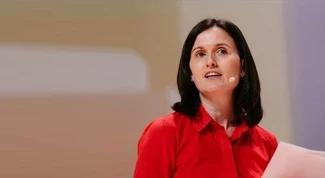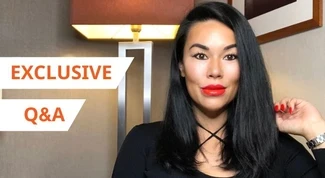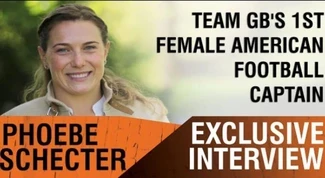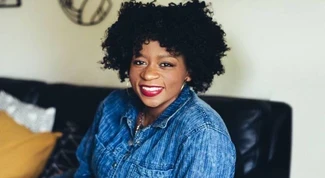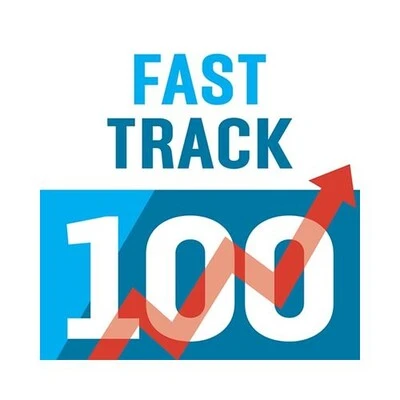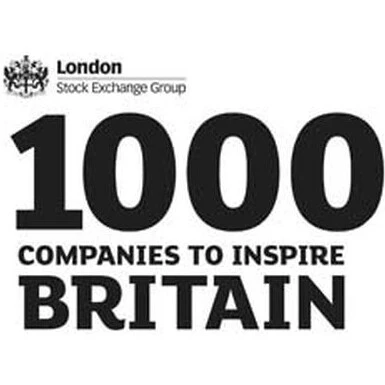Charlie Webster is a mental health advocate and experienced sports presenter. She was the first woman to host a World Title boxing fight, an achievement that vastly improved gender representation in sport.
Equipped with a powerful message of equality, we had the privilege of sitting down with Charlie to hear her thoughts on inclusion in sport, and how football is key to mental wellbeing.
Learn more about the inspiring Charlie Webster in our latest interview:
Q: What role does sport play in the conversation around mental health?
“Football plays such a huge part in the conversation, in terms of mental health, for so many reasons.
“For me, it’s like therapy, it's my meditation. I'd really struggle if I didn't do physical activity and sport. I'd really, really mentally struggle. So, on an individual level, it is so important.
“But then on a community level, it gives people hope. It gives people a community, friendships, a safe place.
“And it's so important for young people, as it can give you a sense of identity, a sense of achievement. It can help you fulfil your potential. It can help you realise that ‘oh, yeah, you can actually break those boundaries’, because that's what sport is about.
“I've been to so many football matches and I've probably had nothing much in common with the person behind me. But they supported the same team as me, so I've got football in common with them. And when you have a conversation, it doesn't matter whether it's with somebody my age, a 16-year-old, or an 85-year-old sat there.
“You can use sport as a way to create a conversation that might be quite difficult to normally have. I know that for men, due to gender stereotyping, it can be especially difficult. I have three brothers, younger brothers, and it's so important that you have that conversation about mental health.
“And that's where football comes in. It's a safe space, a safe place of football.”
Q: Do you think we have reached complete equality in sport & why is it important we level the gender playing field?
“I’m not going to call it ‘equal’, but we've improved.
“We've improved even since I started my career. I started my career in sport and there was no women's sport anyway, not really on a professional level. And there wasn't at a grassroots level.
“For me, if I look at when I was younger, there's been so much change. I would never have seen sport as a viable career path, but it is now, which is amazing. So, it has improved in that sense.
“Also, when I started my career in sports broadcast, there was hardly ever more than one woman. I mean, in front of the camera, behind the camera, never.
“It was a men's club, and so it's changed in that sense because we're seeing women in front more, play for professional sport, we're seeing women's coaches. But it's still not an equal playing field.
“Even the conversation [during Covid-19], it was all about getting men's sports back, because that's where they see the money. This is really disappointing because we had the Women's World Cup last year which made massive steps in equality.
“I think change takes time, but it is changing, and I think it's going in the right direction – it’s not something that's going to happen overnight.”
Q: How did you enter a male-dominated industry & what is your advice to others doing the same?
“I think firstly, make sure it's your passion. Understand your why, because this is not an easy industry.
“For me, there was no plan B. I got my degree, but after that, I just went on a mission because it's what I believed in and felt so passionate about. Part of me has a little bit of a chip on my shoulder, where I wanted to show that somebody like me could succeed.
“I was very poor. My mum had me as a teenager, and I'm super proud of her. But it was difficult. I didn't necessarily have support. I didn't have any money. I didn't know anybody.
“I wasn’t somebody's daughter who works in this industry - I didn't even know anybody in London. I moved to London with nothing and not knowing anybody. And I just started to make contacts, I put myself on a journalism course.
“I did modelling, as well, and I just kept striving and learning my craft, which is really important.
“Learn your craft, make sure you know what you’re talking about. That's how I got into sports broadcasting.
“I remember going up for my very first job and it was in football. I knew football like the back of my hand having played football since I was a child, it was my love. I was brought up in Sheffield, which's a huge footballing city.
“I remember going for this interview and I walked in, and I was the only one wearing a pair of jeans. I remember exactly a pair of jeans, a white T-shirt, and I'd got massive high heels on and long blonde hair.
“And I walked in and everybody was wearing a suit. Everybody was at least ten years older than me. And I probably spotted two other women and everyone else men.
“I nearly walked out, very nearly said, ‘I’m not going to get this like I'm not good enough’.
“And it turns out, I got the job. Not because I wasn't wearing a suit, because I knew my stuff. I was the one person in there who could talk about football all day long because it was my passion.”
Q: How did it feel becoming the first woman to host a world title fight & what was the response you experienced on social media?
“It felt amazing to host a heavyweight title fight, and actually be the first woman to do so.
“I wanted to do that from a very young age. I was a massive boxing fan; I've still got loads of Muhammad Ali books. I used to read his books from such a young age, I just loved the sport - I still do.
“But the head of that network said to me that the boxing world isn't ready for a woman. This was just before the Olympic Games in 2012. So, before women were allowed to box in the Olympics; before Nicola Adams won Gold.
“And I was like, ‘what do you mean?’ - I was shocked - ‘why does it mean that because I'm a woman I can't talk about boxing?’. And in fact, looking at the team, I was the only one who was trained in boxing.
“It was like holding a red flag to a bull because I was like, ‘I'm going to prove you wrong’. And I just tried, and I tried, and I tried so hard to show that I knew boxing. So, whenever there was a boxing segment, I'd make sure I asked to present it.
“And then when women were allowed to box in the Olympic Games, I used the opportunity to say, ‘well, can I cover the women then?’.
“And then it grew from there. I think this is a massive message that if somebody says you can't do something, it doesn't mean they’re right.”
Book Charlie Webster
To book Charlie Webster to discuss sport, gender diversity and mental health at your event, contact a booking agent at Champions Speakers by phone, on 0207 1010 553, or via our online contact form.
